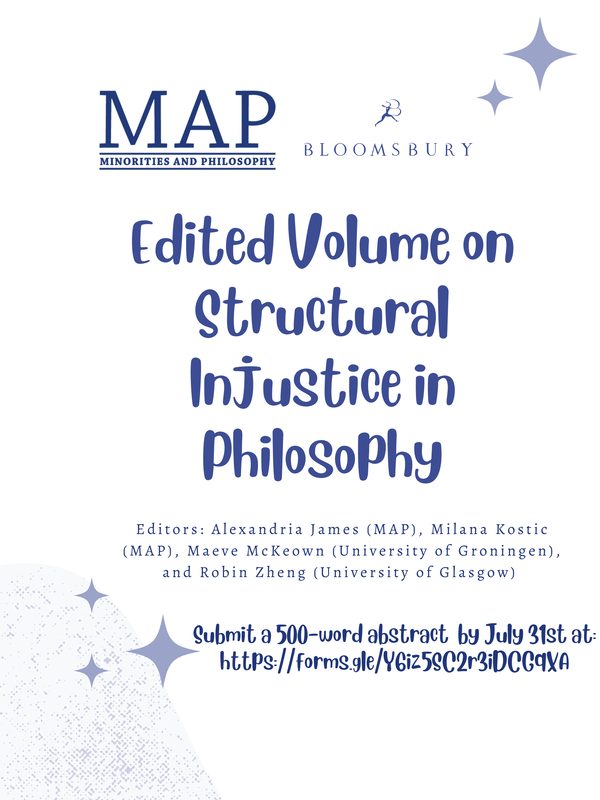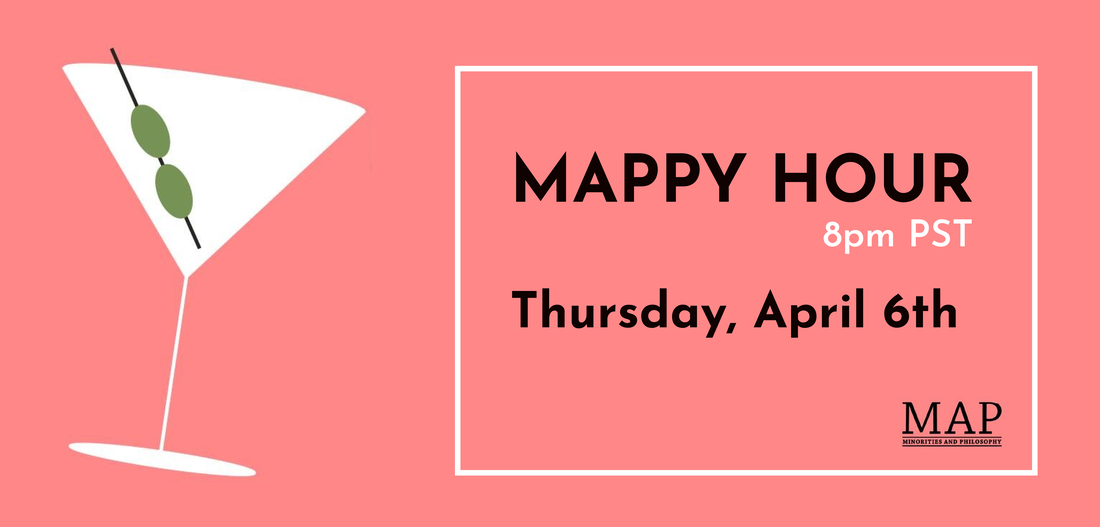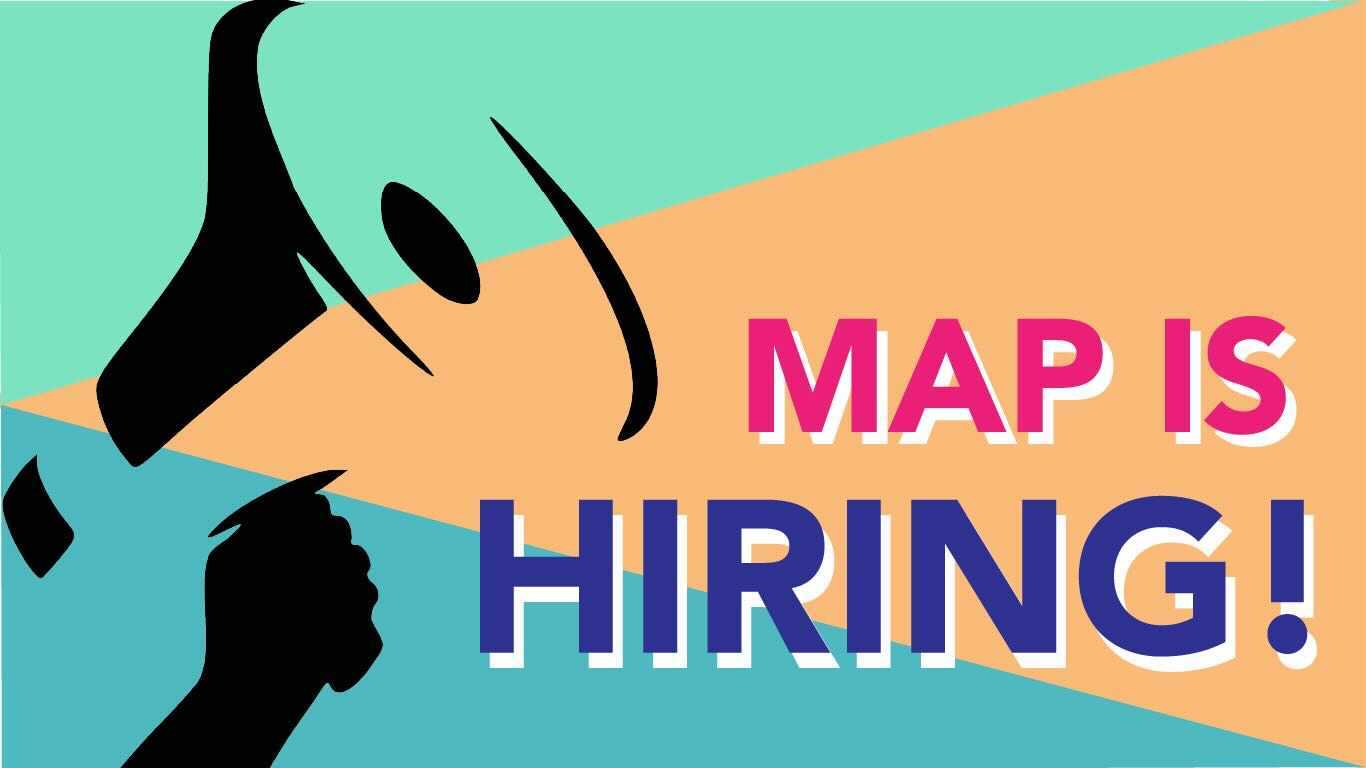|
Call for Applications: Flash talks on reimagining philosophy
MAP International is looking for speakers for our group session at the 2024 Central APA. The session’s topic is MAPping the Future: Reimagining the Status Quo in Academic Philosophy. Flash talks should be 5-15 minutes in length and imagine paths to an inclusive and diverse future for philosophy. We encourage creative interpretations of the topic – our aim is to highlight diverse viewpoints and to provide a space for dialogue among philosophers with underrepresented identities in the discipline. The event will take place on Thursday, February 22nd, 2024 at 9am at the Central APA in New Orleans, Louisiana. Selected speakers that are students will be eligible to receive a modest travel stipend from MAP International. To apply: Send a 200-600 word abstract of your talk to mapforthegap@gmail.com with the subject heading “2024 APA flash talk application” by December 20th, 2024. Please contact us at mapforthegap@gmail.com if you have questions.
0 Comments
Minorities and Philosophy (MAP) International is looking for speakers for our group session at the 2024 Central APA. The session’s topic is MAPping the Future: Reimagining the Status Quo in Academic Philosophy. Flash talks should be 5-15 minutes in length and imagine paths to an inclusive and diverse future for philosophy. We encourage creative interpretations of the topic – our aim is to highlight diverse viewpoints and to provide a space for dialogue among philosophers with underrepresented identities in the discipline.
The event will take place on Thursday, February 22nd, 2024 at 9am at the Central APA in New Orleans, Louisiana. Selected speakers that are graduate students will be eligible to receive a modest travel stipend from MAP International. To apply: Send a 200-600 word abstract of your talk to mapforthegap@gmail.com with the subject heading “2024 APA flash talk application” by December 20th, 2024. Please contact mapforthegap@gmail.com if you have questions. Minorities and Philosophy (MAP) will be hiring one to two organizers to help direct MAP
International. MAP is a collection of graduate students in philosophy departments which aims to examine and address barriers to equitable participation in academic philosophy. It comprises over 100 chapters worldwide and continues to grow. The role of International Organizers is largely to facilitate the success of MAP chapters and oversee the development of the larger organization. As such, responsibilities may include: conferencing regularly with other Organizers, making decisions on the growth of MAP regions and projects, coordinating with outside organizations (like the APA or funders), responding to chapter funding requests, updating the website and social media pages, collating lists of chapter activities, publishing newsletters and reports, touching base with chapter organizers, and more. Organizers receive a modest honorarium for their work. The intended start date for this position is the Spring Semester 2024, though this is somewhat flexible. Selected organizers must start no later than summer 2024. Application criteria: ● Must be a current graduate student (MA or PhD). ● Must be able to be make a two-year commitment to the organizer position. ● Experience with local MAP chapter and/or MAP-related or MAP-adjacent outreach recommended. ● Additional organizing experience (e.g. with non-profit organizations, departmental service responsibilities, etc.) is also a plus (please highlight in CV or statement of interest). ● MAP International oversees many chapters, events, and partnerships. Strong applicants will make clear how they construct and manage an organized workflow and balance their various commitments. ● Other valued skills include, but are by no means limited to, experience with graphic design, social media, managing institutional partnerships, listserv maintenance, email blasts, nonprofit fundraising. To apply: Please submit a Statement of Interest and CV (as a single PDF) by December 1, 2023 to: mapforthegap@gmail.com with the subject line ‘Organizer Application – [LastName, FirstName]’ Your statement of interest should be no longer 2 pages double-spaced. It should explain why you are interested in the role of MAP International Organizer and why you fit the role well. It should outline, if only briefly, the unique skills you would bring on to a team. You should also detail past involvement with MAP and other relevant experiences. We will notify all applicants no later than Feb 1, 2024. If you have any questions, please contact us at mapforthegap@gmail.com. To mark 10 years since MAP's foundation, MAP is joining forces with Bloomsbury Academic to produce our first publication: MAP & Bloomsbury Edited Volume on Structural Injustice in Philosophy!
See the Call for Papers and submit your abstract by July 31st at this link! Come meet or catch up with MAP Chapter members and international organizers from across the globe! We’ll meet at 620 Jones on Thursday, April 6th, starting at 8pm PST. Hope to see you there!
Minorities and Philosophy (MAP) will be hiring one organizer to help run MAP International. Our ideal candidate is highly organized, dependable, motivated, and enthusiastic about MAP and its mission. MAP is a collection of students in philosophy departments that aims to examine and address issues of minority participation in academic philosophy. It currently comprises over 180 chapters worldwide and continues to grow and expand.The role of International Organizers is largely to facilitate the success of MAP chapters and oversee the development of the larger organization. Thus, responsibilities include: meeting regularly with the other International Organizers (roughly twice a month), making decisions regarding the growth of MAP regions and projects, coordinating with outside organizations (like the APA and funders), responding to chapter funding requests, updating the website and social media pages, advertising events, collating lists of chapter activities, touching base with chapter organizers, fundraising on MAP's behalf and more. Organizers are also expected to produce periodic reports on MAP's activities: in the fall, a report of plans for the upcoming academic year, and in the spring, a report of the year's activities. Organizers are also expected to compile this information around October of each year into an annual report for our funding partner, the Marc Sanders Foundation.
Additionally, MAP International Organizers work on projects meant to set the agenda for important interventions on behalf of marginalized groups in philosophy (such as our project on service work in 2019-2020 and our fundraising campaign in 2020-2021). In this capacity, Organizers have substantial freedom to propose and take up specific cause areas and are expected to be proactive. Some of the responsibilities associated with this dimension of the role include: collecting resources, running surveys, collecting input from MAP members, writing reports and blog posts, producing and distributing infographics and other social media materials, and hosting APA Group sessions (and sessions at other conferences). Organizers receive a modest honorarium for their work. We especially encourage Black, Indigenous, and people of color to apply to these positions. Criteria for applying:
To apply, complete and submit this Google Form by July 31, 2022. We will notify all applicants by August 9, 2022. Start date is approximately August 20, 2022. If you have any questions, please contact us at mapforthegap@gmail.com. The Philosophy of Science Association (PSA) will hold a meeting in Pittsburgh from November 10-13, 2022, and MAP International will be running a Group Session on Indigenous and Non-Western Philosophy of Science. We are inviting submissions for brief, 5-10 minute presentations on this topic.
Possible topics for presentation include but are not limited to:
Abstracts should be no more than 800 words and in a PDF format. Submissions can be made using this Google form. The application is not intended to be selective -- we plan on accepting as many speakers as our session time allows. Please note that, per PSA policy, no one is permitted to present more than once at PSA2022 (excluding presentations at the poster forum). We particularly encourage submissions by members of underrepresented groups in philosophy, graduate students, and junior scholars. For members of underrepresented groups in philosophy, the Underrepresented Philosophy of Science Scholars (UPSS) Initiative provides a travel grant to defray travel costs to attend the meeting. Please send any questions and comments to mapforthegap@gmail.com. We look forward to reading your submissions. The University of Pennsylvania chapter of Minorities & Philosophy (MAP-Penn) is organizing a spring conference around the philosophy of disability and illness. Please circulate this call-for-abstracts to your graduate students and other early career scholars.
What: 6th MAP-Penn Conference: Philosophy of Disability & Illness When: Apr 08, 2022, 11:30 AM EDT – Apr 10, 2022, 3:00 PM EDT Where: Virtual! Keynotes: Havi Carel, Joseph Stramondo, and Jasmine Harris Anonymized abstracts due: Jan 03, 2022 Website: https://tiinarosenqvist.wixsite.com/map-penn-disability PhilEvents: https://philevents.org/event/show/93825 We are soliciting anonymized abstracts of 500-750 words on any aspect of Philosophy of Disability and/or Philosophy of Illness. This includes, but is not limited to, disability and/or illness-related conceptual and normative issues in philosophy of law, in medical ethics, in bioethics, in general ethics, in the history of philosophy, in social and political philosophy, in social epistemology, in one’s personal experiences as a philosopher, and in philosophy teaching practices. Please send abstracts to trosenq@sas.upenn.edu with subject line ‘MAP Conference’ by January 3, 2022. The abstracts should be prepared for anonymous review (i.e., please remove identifiers) and submitted in .pdf, .docx, or .doc format. Please specify your name, institutional role (if any), and institution (if any) in the body of the email. Accessibility: The conference will take place on Zoom for a few hours each day and we will provide real-time captioning. More details are forthcoming. We aim to make the conference as accessible as possible: please contact us about any other access needs. Volume 7: Teaching Philosophy as a Way of Life
American Association of Philosophy Teachers Studies in Pedagogy is a peer-reviewed annual journal dedicated to publishing thematically focused volumes of original works on teaching and learning in philosophy. The thematic volumes include a range of contributions, from practical advice to theoretical discussions. Contributions are welcomed from anyone teaching philosophy, including high school teachers, graduate students, new faculty, and tenured professors. The AAPT Studies in Pedagogy is soliciting original papers for consideration in our upcoming volume on Teaching Philosophy as a Way of Life broadly construed. Over the last decade or so, the way-of-life conception of philosophy has evoked an exciting and growing interest for reviving an ancient idea of philosophy as a guide to a good life. Though rooted in the work of Pierre Hadot, the aim of this volume reaches far beyond Hadot scholarship. Those who center the way-of-life approach value philosophy as a practice that can guard against the instrumentalization and economization of our day-to-day lives. Philosophy shapes how we attend to and engage our inner and outer worlds, while promoting individual and collective intentionality, reflection, and enlarged thoughtfulness. We anticipate the final articles will run between 4000-9000 words, depending on the topic. Submissions should be prepared for anonymous review. While not required for review of paper submissions, final papers will need to follow Chicago Manual of Style 17th ed. guidelines. In matters where CMoS allows for variable formatting we have a house style that is followed. Deadline: November 1, 2021 To submit, go to https://aaptstudies.org/submissions A former Cartographer and a founding director of MAP UK, Filippo Contesi, has recently started an important initiative that aims to improve the situation non-native speakers face in analytic philosophy. Filippo prepared a manifesto of commitments that can be seen at the link below:
https://contesi.wordpress.com/bp/ About a week after its launch, the manifesto has been signed by over 400 academics in more than 35 countries around the world. Please consider signing and distributing the manifesto further. Thank you, Filippo, for this amazing initiative, and to everyone who has supported it so far! MAP International |
NEWSUpdates on MAP and MAP-related happenings.
Please contact us here for suggestions, comments, or job postings. Archives
December 2023
Categories |
|
MAP is generously supported by the Marc Sanders Foundation and the Philosophy of Science Association.
|




 RSS Feed
RSS Feed